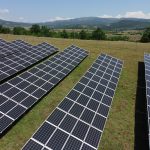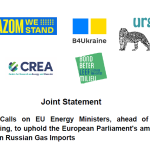On the 11th of June, EU environment ministers discussed several climate change issues. They had debates on the provision of financial support to developing countries for reducing emissions and adapting to climate change, as well as on action to reduce emissions domestically. Both of these issues must be advanced to have any chance of a globally binding deal in 2015.
The EU must keep its commitments by joining other developed countries in providing US$10-15 billion to the Green Climate Fund for the period 2013- 2015. The EU must also develop its own roadmap for providing the EU’s fair share of the developed countries’ promise to provide US$100 billion per year by 2020. Finally, the EU should start work on designing the carbon pricing mechanisms promised for international aviation and shipping at the most recent meeting of EU finance ministers. The EU should now set up a task force with environment, transport and finance ministers to develop a clear strategy on this issue.
If the EU is serious about calling upon developing countries to participate in closing the gap between pledged emission reductions and what is needed to keep temperature rise below the 2°C threshold, then it must commit to putting money on the table in 2013. In 2010 and 2011, the EU provided €4.59 billion total in fast start finance, as promised in Copenhagen. We congratulate the EU for keeping this commitment, but it has not given any signs that it plans to continue or increase this funding, up to its fair share of the promised US$100 billion (€79 billion)/year by 2020.
Yet again Poland is blocking progress on the EU’s own climate ambition and its contribution to closing the gap between emission reductions pledged and what is needed to stay below a temperature increase of 2°C. The inability of environment ministers to adequately address the issue of emissions reduction milestones, as part of the Low Carbon Roadmap discussions, means that this discussion must move up to the Heads of State and Government. Under discussions on the 7th Environment Action Programme, ministers were unable to make reference to the low-carbon roadmap and instead recalled European Heads of State conclusions to make rapid progress on the low-carbon 2050 strategy. This means the issue will have to be tackled at the level of Heads of State and Government.
To ensure that negotiations move toward a new legally binding global agreement in 2015, an atmosphere of trust and cooperation must be created. We call upon EU Council President Van Rompuy and heads of government Merkel, Hollande and Cameron to include low-carbon development and greater climate ambition, as drivers of an EU growth project, on the agenda of the next European Council of 28-29 June.



